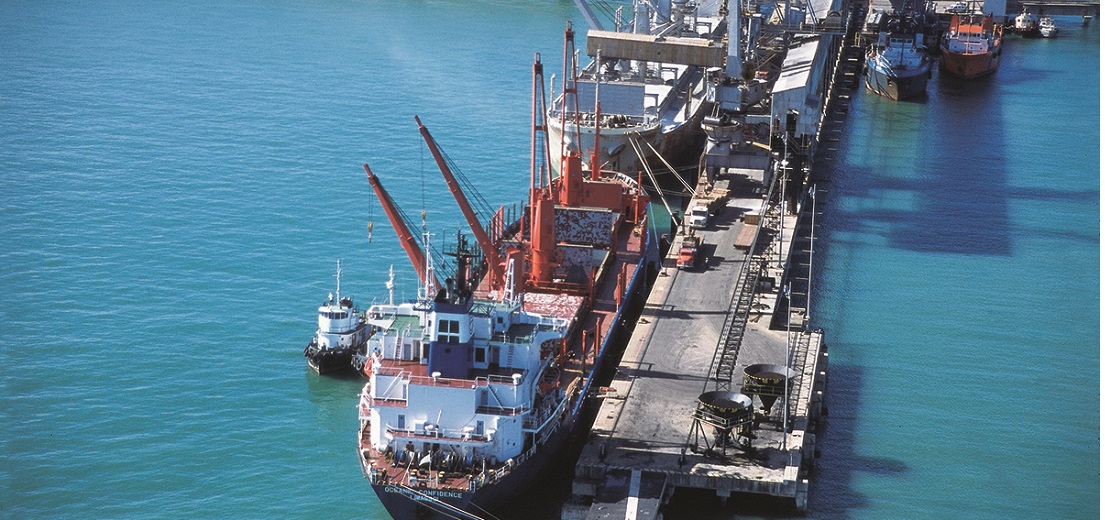
New agribusiness contracts drive surge in VLI’s maritime terminal in Sergipe
Aug, 28, 2023 Posted by Gabriel MalheirosWeek 202336
Located in Barra dos Coqueiros, Sergipe, the Inácio Barbosa Maritime Terminal (TMIB) operated by VLI has seen a 60% increase in cargo volume from new commercial contracts signed in 2023, primarily in the fertilizers sector. As a result, Sergipe’s only port terminal is solidifying its role as an alternative for the agribusiness sector in the ‘Arco Norte’ region. The flexibility of TMIB also allows cargo operations involving grains, construction materials, mining inputs, and offshore operations.
VLI formalized several partnerships with major agribusiness players in the first half of 2023 alone, including Fertinor, a company within the Fertipar Group—one of the main suppliers of fertilizers for rural production across Brazil; Agropecuária Maratá, to serve the company’s new factory opened this year; and Cibra Fertilizantes, with which the company is conducting joint studies to develop a logistics solution via TMIB.
“The TMIB has become a strategic option to meet the demand for fertilizers, placing Sergipe and the Northeast region on important logistics routes. The market looks for competitiveness, operational performance, offloading rates, and reduced waiting times in the queue for berthing, which leads to cost savings with demurrage. The terminal offers better conditions than competing ports in other states,” explains Márcio Marques, Commercial Manager of VLI for TMIB.
Among the terminal’s features is its proximity to key logistic corridors and production hubs. “Agribusiness clients also recognize VLI’s expertise in the sector due to its experience with grains, sugar, and fertilizers in other logistics corridors. TMIB has the potential to establish new links between regional agribusiness and the global market. The terminal’s storage capacity has increased by 25% for the fertilizer segment alone,” highlights Marques.
Due to an increase in soybean meal and grain exports, the company facilitated the flow of trucks in the corridor leading to TMIB. This allows trucks to convey crops from the country to the port for export before returning laden with imported fertilizer, much of which originates from Europe. After being processed in industrial units, the product is supplied throughout Sergipe and the Western region of Bahia, which is a prominent agriculture center.
“Strategically speaking, our partnership with TMIB is crucial for Maratá’s development in Sergipe. Thanks to the port, we will supply the new fertilizer factory inaugurated in June, with a capacity to produce 300,000 tons per year and serve the entire Northeast region. In September, we will also inaugurate a wheat mill with a capacity of 200,000 tons per year. Our expectation is to further increase cargo movement through TMIB in the coming months, as the terminal offers the efficiency and logistics agility we need to fill a gap in the market,” informs Frank Vieira, Executive Director of the Maratá Group.
Infrastructure
The terminal has received BRL 40 million in investments in recent years and features berths for bulk operations with a length of 356 meters, as well as offshore operation piers with a length of 59 meters. TMIB also occupies 214 hectares of available space and includes seven warehouses with a capacity of 55,000 tonnes, three yards for 150,000 tonnes, and three silos with a combined capacity of 60,000 tonnes.
Three new grabs have also been acquired to enhance the loading and unloading of solid bulk cargo from ships, leading to a 20% increase in cargo handling productivity. The TMIB infrastructure supports 200 jobs and contributes to VLI, injecting approximately BRL 30 million into the Sergipe economy annually.
-
Grains
May, 05, 2022
0
The Brazilian animal feed industry shall grow 3.5% this year
-
Meat
Jul, 26, 2022
0
Revenue from beef exports stands out in July 2022; earnings should be close to $1 billion
-
Grains
Aug, 15, 2022
0
China to Speed Brazil Corn Imports Amid US Tensions
-
Ports and Terminals
Apr, 05, 2019
0
Auction winners announced for 6 liquid bulk terminals in Pará

